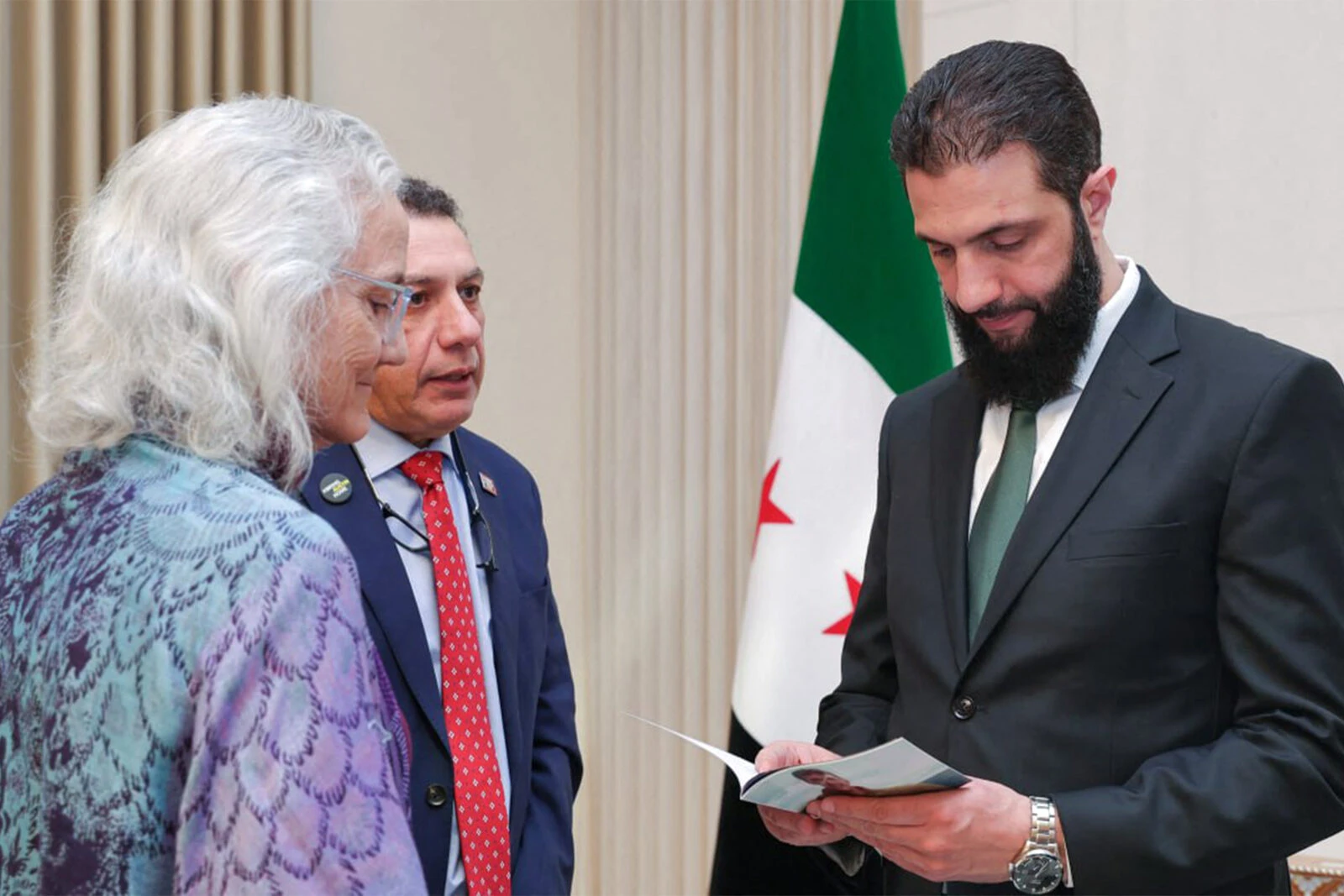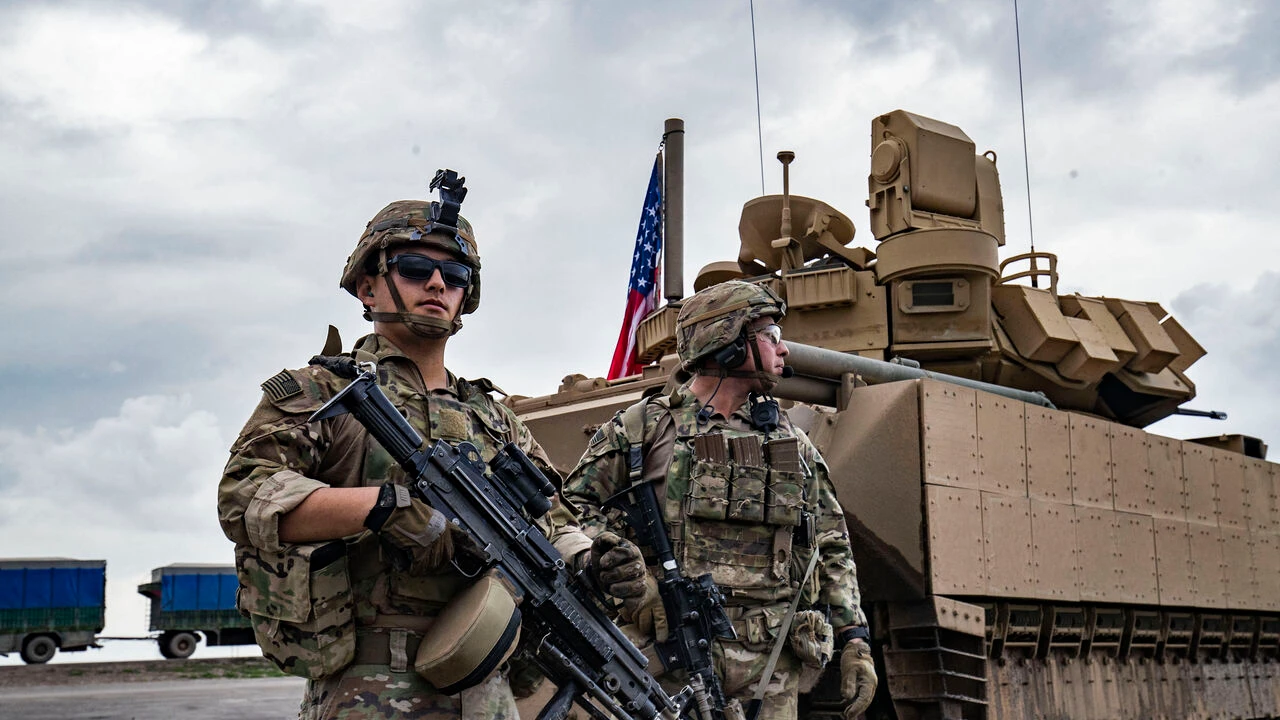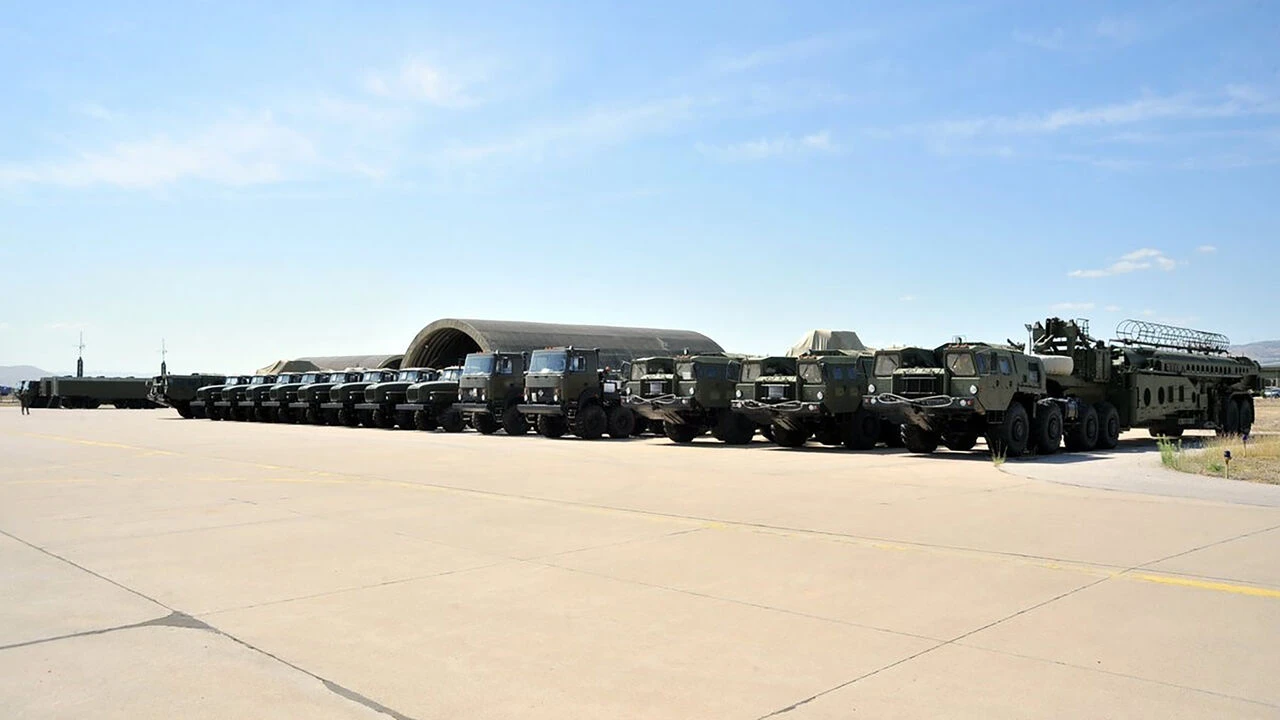US sets conditions for lifting sanctions on Syria
 This handout picture released by the Syrian Presidency shows interim President Ahmed al-Sharaa speaking in Damascus on March 29, 2025. Syria's interim President Ahmed al-Sharaa announced the formation of a new government late on March 29, reaffirming his commitment to "building a strong and stable state." Day to day affairs in Syria have been administered by a ministerial team since president Bashar al-Assad was ousted by Islamist rebels on December 8. (Photo by Syrian Presidency / AFP)
This handout picture released by the Syrian Presidency shows interim President Ahmed al-Sharaa speaking in Damascus on March 29, 2025. Syria's interim President Ahmed al-Sharaa announced the formation of a new government late on March 29, reaffirming his commitment to "building a strong and stable state." Day to day affairs in Syria have been administered by a ministerial team since president Bashar al-Assad was ousted by Islamist rebels on December 8. (Photo by Syrian Presidency / AFP)
A top U.S. diplomat for the Middle East outlined a series of demands Thursday that the Syrian leadership must meet in exchange for partially removing sanctions on Syria. The move signals Washington’s openness to re-engagement if progress is made on key fronts despite close U.S. ally Israel’s push to follow a hardline policy on Syria.
Tim Lenderking, a senior official in the State Department’s Bureau of Near Eastern Affairs under the Trump administration, detailed the U.S. position during a webinar hosted by the National Council on U.S.-Arab Relations.
He emphasized that while sanctions remain in place, there is room for flexibility should the interim authorities demonstrate a change. Lenderking’s statement did not mention Israel’s destabilizing and unprovoked attacks on multiple Syrian cities, which were intended to destroy Syria’s military and civilian infrastructure.
“We’re looking for an opportunity where we can build confidence,” Lenderking said. “These are not things that can be remedied overnight, but there’s a keenness on the part of the United States to engage and really see what these guys are made of.”
Key U.S. expectations include credible information on Americans detained or disappeared in Syrian prisons, most notably journalist Austin Tice, according to Lenderking.
He noted that while he was “very pleased” by a Jan. 19 meeting between Syrian President Ahmad al-Sharaa and Tice’s mother, Deborah, “we need to know where he is,” adding that the fate of other missing Americans must also be clarified.

Fighting Iran’s influence is a key demand to remove sanctions on Syria
“We are very keen and determined to see that Iran does not gain a foothold back in Syrian territory,” he said, adding that the U.S. also wants guarantees that Iran and its proxies, including Hezbollah, will be kept out of Syrian territory.
He urged the Syrian government to continue efforts to combat terrorism, especially Daesh, and welcomed the deal signed in March between the SDF and the Syrian government to “integrate the northeast into a unified Syria.”
“We recognize the implementation of these agreements are fraught with challenges, but the parties must come to a solution that ensures that ISIS and any other terror group can never again resurge in Syria,” he added, using another acronym for the Daesh terrorist group.
Lenderking emphasized the need to destroy all chemical weapons and precursors and to adopt non-aggression principles toward neighboring states.

Transparency on what happened in Latakia is ‘crucial’ to remove sanctions on Syria
He called for accountability for atrocities committed during the war, including the March violence in Latakia, northwestern Syria, which he attributed to Iran and remnants of the Assad regime.
He also demanded that all foreign fighters be expelled from Syria’s government and security positions.
“We will consider sanctions relief, provided the interim authorities take demonstrable steps in the directions that I have articulated,” he said, “We want Syria to have a second chance.”
Bashar al-Assad, who ruled Syria for nearly 25 years, fled to Russia on Dec. 8, marking the end of the Baath Party’s rule that began in 1963, after anti-regime groups took control of Damascus.
A transitional administration was announced on Jan. 29, which is led by President Sharaa.



